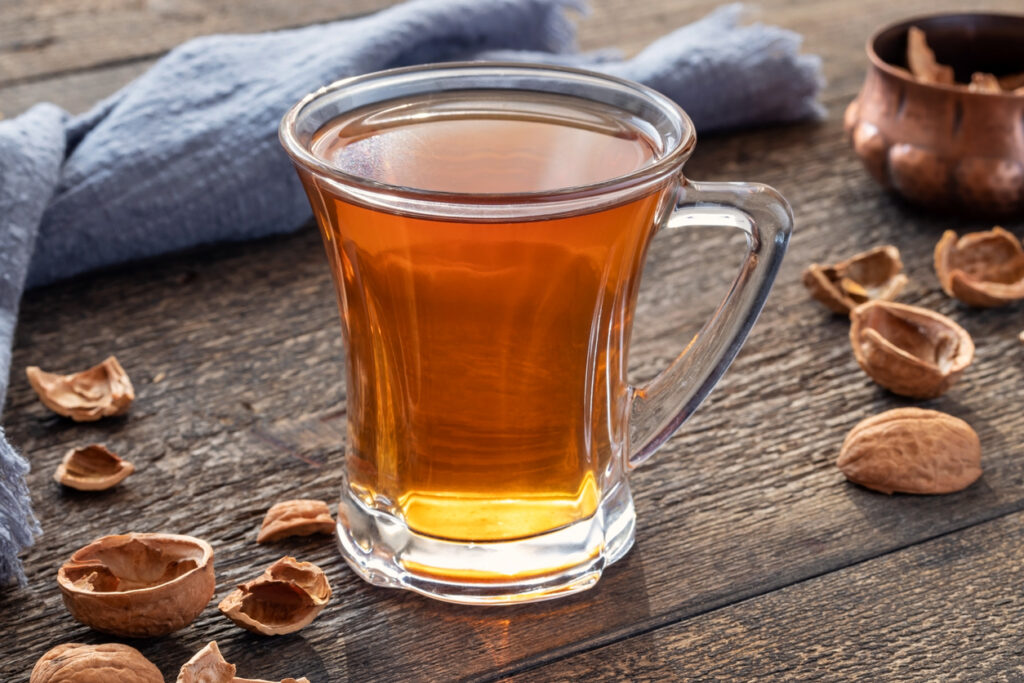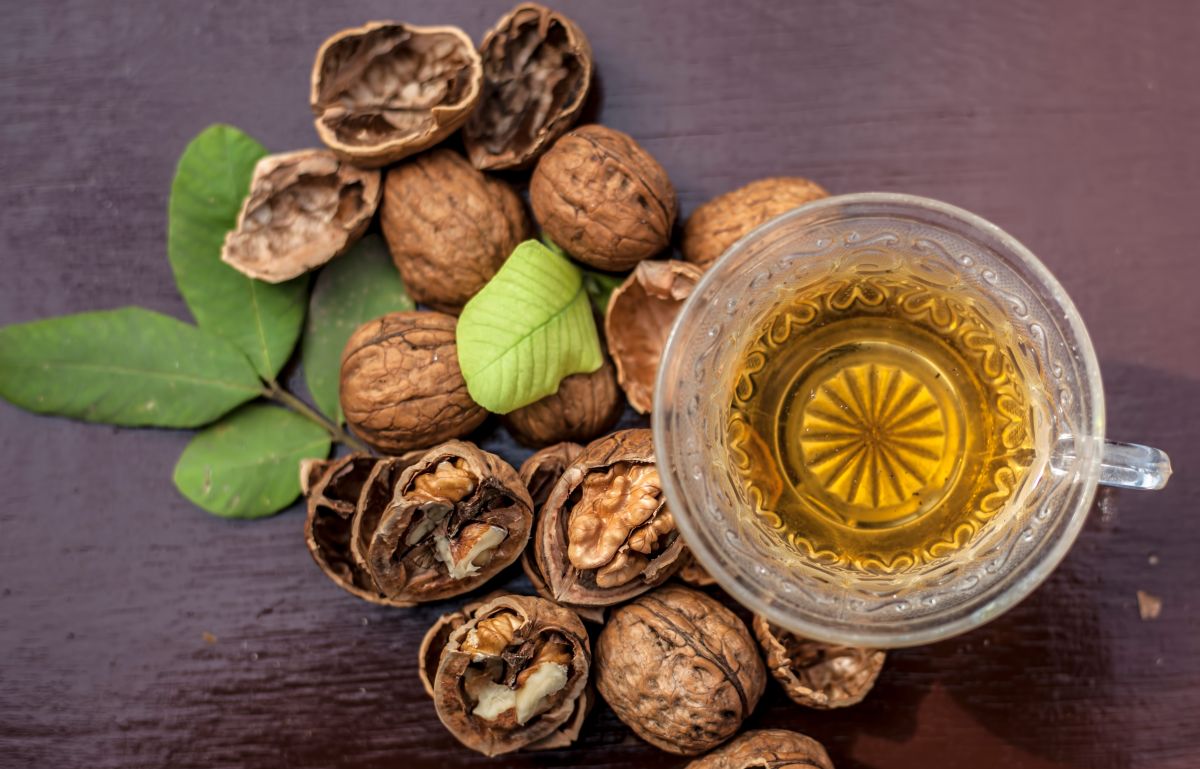When we think of walnuts, most of us imagine crunchy snacks or nutritious additions to salads and desserts. But did you know that walnut tea, made from the leaves or even the green husks of walnuts, has been used for centuries as a natural remedy in traditional medicine?
In this post, we’ll dive into the healing properties of walnut tea, its uses, and when you should be cautious.
🌿 What Is Walnut Tea?
Walnut tea is typically made from the leaves of the walnut tree (usually Juglans regia, or English walnut). The leaves are rich in bioactive compounds like juglone, tannins, flavonoids, and essential oils, which give the tea its distinctive medicinal properties.
While less common, some variations of walnut tea are brewed from the green husks or shells of unripe walnuts.
💪 Health Benefits of Walnut Tea
1. Supports Digestive Health
Walnut leaf tea has mild astringent and antibacterial effects, making it helpful for:
- Diarrhea
- Intestinal inflammation
- Mild parasitic infections (historically used for intestinal worms)
2. Antimicrobial and Antifungal Action
Compounds like juglone are believed to have strong antimicrobial and antifungal properties. Walnut tea may be used topically (in compresses) or internally to support the body in fighting minor infections.
3. Supports Skin Health
Traditionally, walnut leaf infusions have been used externally to help:
- Eczema
- Acne
- Psoriasis
- Minor wounds or skin irritation
It may reduce inflammation and aid in skin regeneration.
4. Regulates Blood Sugar
Some studies suggest that walnut leaf extract might help lower blood glucose levels, potentially supporting those with insulin resistance or type 2 diabetes. However, more research is needed before it can be recommended for this use.
5. Anti-inflammatory Effects
The antioxidants and flavonoids in walnut tea may help reduce chronic inflammation and oxidative stress in the body, supporting overall health.
🍵 How to Make Walnut Tea
Ingredients:
- 1–2 teaspoons of dried walnut leaves (or green husk)
- 1 cup of boiling water
Instructions:
- Pour boiling water over the walnut leaves.
- Let steep for 5–10 minutes.
- Strain and drink warm, optionally with honey or lemon.
Usage Tip: Limit intake to 1–2 cups per day unless advised otherwise by a herbalist or health professional.
⚠ Contraindications and Side Effects
While walnut tea is generally safe when used in moderation, there are a few important precautions:
❌ Not Recommended For:
- Pregnant or breastfeeding women: Due to lack of safety data.
- Young children: Especially when used internally.
- People with nut allergies: Even though the tea is made from leaves, trace allergens may be present.
- People with kidney or liver issues: Walnut leaves contain compounds that may be hard to metabolize in high doses.
- Patients on antidiabetic medication: Walnut tea may lower blood sugar, so combining it with medication might cause hypoglycemia.
🧪 Potential Side Effects (Rare but Possible):
- Nausea or upset stomach
- Allergic skin reactions
- Lowered blood sugar levels
Always consult a healthcare professional before starting regular use, especially if you’re on medication or managing a chronic condition.

Walnut tea is a fascinating, traditional herbal remedy with a wide range of potential health benefits—from aiding digestion to promoting clearer skin and possibly even regulating blood sugar. However, like all herbal teas, it should be used with care and awareness of your personal health needs and contraindications.
If you’re curious about natural remedies and plant-based wellness, walnut tea could be a simple and powerful addition to your herbal toolkit—just be sure to drink it responsibly!

